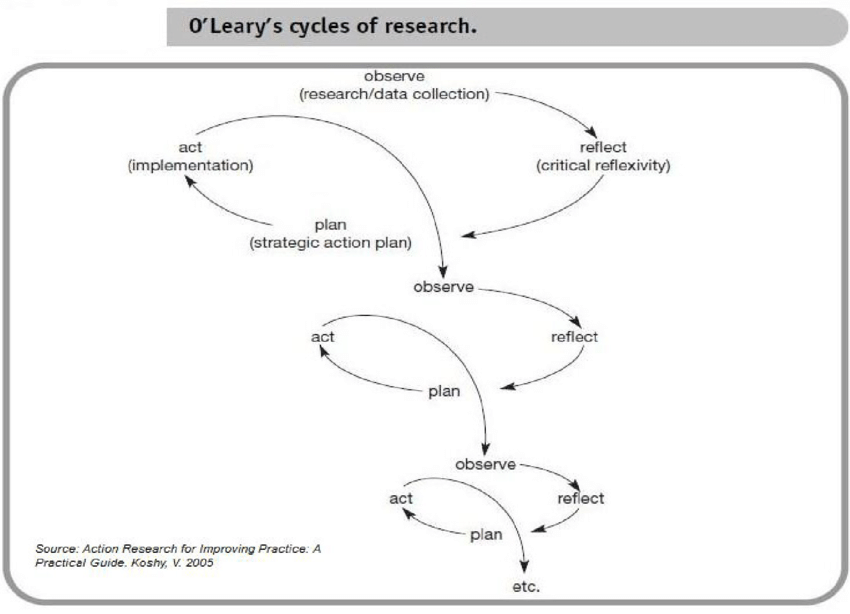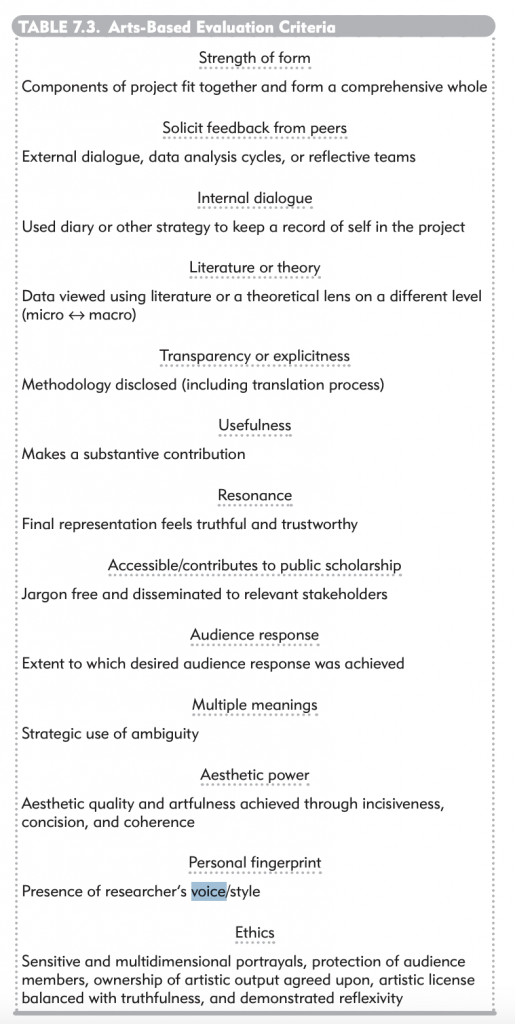
Participatory Action Research
Participatory Action Research, in the model of Paulo Friere’s ‘problem posing education’ is my chosen research method for this project due to the aims (see Rationale post https://pgcertiplum.myblog.arts.ac.uk/2023/11/08/rationale/) to support students to voice their experience of sound and music. This is an act of cognition, that goes beyond the vocabulary acquisition and ‘banking’ method Friere is responding to. These workshops will be planned to gradually approach different aspects of cognition and methods to support this, with a reflection at the end of each session utilising a different design each time for exploring the dialogical relations in voicing sound experiences.
“Liberating education consists in acts of cognition, not transferrals of information. It is a learning situation in which the cognizable object (far from being the end of the cognitive act) intermediates the cognitive actors—teacher on the one hand and students on the other. Accordingly, the practice of problem-posing education entails at the outset that the teacher-student contradiction to be resolved. Dialogical relations—indispensable to the capacity of cognitive actors to cooperate in perceiving the same cognizable object—are otherwise impossible.”
– Freire, P. (2005a). Pedagogy of the Oppressed (30th Anniversary Edition). New York: The Continuum International Publishing Group.- 2005, p.80
Play As Design Principle
“The objectives are at once academic and political, putting at the very centre of this approach the experience (vivencias – a term that implies something more than what is merely experienced, but actually what is lived) and commitment of both internal and external participants. Each one of these participants ‘contribute their own knowledge, techniques and experiences to the transformation process’, which stem from ‘different class conformations and rationalities’ (one Cartesian and academic, the other experiential and practical). Thus a dialectical tension is created between them which can be resolved only through practical commitment, that is, through a form of ‘praxis’ “
– Gutiérrez, J (2016) ‘Participatory Action Research (PAR) and the Colombian Peasant Reserve Zones: The Legacy of Orlando Fals Borda’, Policy and Practice: A Development Education Review, Vol. 22, Spring, pp. 59-76.

With this quote in mind I approached Rubie, a singer who works with London choir F* Choir, as I thought it was important to bring a non-academic voice in as a guest facilitator. This enabled us, as a group made up of teachers and students, to explore voicing as a form of play. This could allow the hierarchies of the workshop space and the cartesan and academic, the experimental and practical, to all be encompassed within the exercises of the workshops, and more importantly for this project, within the analysis at the end of each workshop (see Data Analysis post https://pgcertiplum.myblog.arts.ac.uk/2025/05/28/data-analysis/).
The form of play as a design principle puts this idea of experience at the centre of focus in designing the workshops. It also allowed for a wide variety of approaches to data collecting, which was necessary to navigate such a nuanced, intangible and invisible process such as reflecting on the internal experience of sounding the voice: voicing the experience of voicing. (See Project Findings post https://pgcertiplum.myblog.arts.ac.uk/2025/08/01/project-findings-2/). The ‘games’ I designed as exercises for data collection needed to be designed to give every participant a voice in giving feedback, just as their voice had been supported in the workshop exercises on using the voice.
O’Leary’s Cycles Of Research
I chose to follow the diagram of O’Leary’s Cycles Of Research method to develop my Action research Plan (see Action Plan post https://pgcertiplum.myblog.arts.ac.uk/2023/11/08/action-plan/).
These cycles show a developing feedback cycle with multiple iterations which I felt was necessary to explore and learn from each cycle, in order to develop the design for the next cycle/workshop, specifically to address the nuance in designing both workshop exercises and feedback exercises. I am very familiar with designing workshop exercises to encourage the use of the voice, but less familiar with the design of data collecting feedback exercises.
In my previous research with the NHS, I found the template feedback forms limiting to work with as they were the same for every strand of participant facing work the Recovery College undertook, who I was delivering the research with. In this project, I wanted the design of feedback exercises to be as responsive as the design of the workshop exercises in each cycle. Each cycle has a microcosm of the steps in the Spiral Model from Stephen Kemmis and Robin McTaggart, with an overall narrative arc to develop research into a research narrative that explores multiple outcomes to achieve a final conclusion in analysis with a broader range of data. “O’Leary sees action research as an experiential learning approach, to change, where the goal is to continually refine the methods, data, and interpretation in light of the understanding developed in each earlier cycle.” (Koshy, Koshy, & Waterman, 2010, p. 6)
Spiral Model from Kemmis and McTaggert:
- Planning a change
- Acting and observing the process and consequences of the change
- Reflecting on these processes and consequences
- Re-planning
- Acting and observing again
- Reflecting again
– Kemmis, S., & McTaggart, R. (2007). The Action Research Planner: Doing Critical Participatory Action Research. Thousand Oaks, California: Sage Publications.

Ethnographic models
As mentioned within the post on Rationale (https://pgcertiplum.myblog.arts.ac.uk/2023/11/08/rationale/), this Action research project also follows the Ethnographic model of integrating the concept of commons in education proposed by Korsgard. (Korsgaard, M. T. (2018). Education and the concept of commons. A pedagogical reinterpretation. Educational Philosophy and Theory, 51(4), 445–455. https://doi.org/10.1080/00131857.2018.1485564)
Following the example of Moreno-Romero et al (Moreno-Romero, C., Enn, Ü., Savvani, S., & Pantazis, A. (2024). Educational commons facilitating student voice: an ethnographic approach. Education 3-13, 52(6), 891–910. https://doi.org/10.1080/03004279.2024.2331952), this is combined with the Lundy model of participation to enable students voices to be used and heard. In following the Lundy model below, this project focusses on voice, the second stage of the four chronological stages of Space, Voice, Audience and Influence, as the space has been prescribed by the educational setting of university and departmental spaces. Using these spaces allows the focus to move to voice, the second stage, and to integrate the outcomes of this project directly into the curricular spaces.

Qualitative Data Collection
This project also employs Qualitative Data Collection methods via activities designed to enable Participatory Data Collection (see Project Findings post https://pgcertiplum.myblog.arts.ac.uk/2025/08/01/project-findings-2/) via a collaborative approach that collates diverse perspectives with enhanced data quality through numerous iterations of data collection and different designs to enable participation. The methods used to do this include participatory listening and discussion of the scores used in the workshop activities as well as the feedback on the activities, visual tools such as mind maps, metimeter surveys and the exquisite corpse activity, and focus group discussions to end each workshop (please see Workshop Reflections post https://pgcertiplum.myblog.arts.ac.uk/2023/11/08/project-findings/).
Participatory Data Analysis
Participatory Data Analysis was used for the first workshop feedback activity and the final feedback survey on the Action research project overall, which also used Thematic Analysis to relate the findings of the mentimeter survey to the original rationale and research question for this project. (Please see data Analysis post https://pgcertiplum.myblog.arts.ac.uk/2025/05/28/data-analysis/). I aim to do this following the criteria below from Patricia Leavy, balancing the personal fingerprint of the researcher with the resonance in a representation that feels truthful to the voices of the participants, democratically representing all participants without elevating my own voice as the research above them.

Guilford Publications, 2017